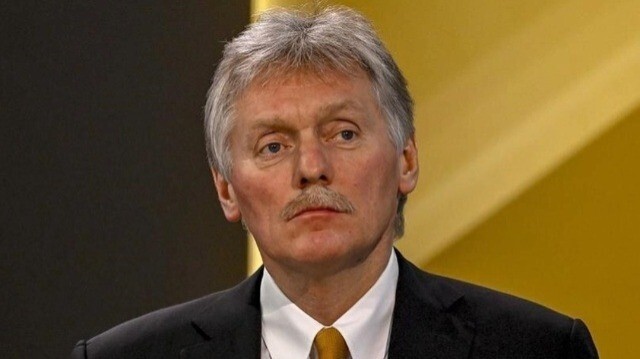

File photo
Kremlin spokesman says Russia considers issue 'shared problem' due to its allied relations with Minsk
The Kremlin spokesman expressed concern on Monday over the high concentration of Ukrainian troops on the Belarusian border, noting that Moscow considers this issue a shared problem due to its allied relations with Minsk.
"This is a cause for concern not only for Minsk but also for Moscow because we are indeed allies and partners," Dmitry Peskov told a news conference in Moscow.
He highlighted the unique relationship between Russia and Belarus -- a union state, which suggests an even higher degree of integration than typical allied ties.
"Belarus is a union state, and we have special formats of dialogue between all relevant departments, including special services. Our defense ministries are in constant contact," Peskov stressed.
He noted that if necessary, the issue of Ukrainian troops on the Belarusian border would be raised at the highest level, during contacts between Presidents Vladimir Putin and Aleksandr Lukashenko.
On June 29, the head of the Belarusian Defense Ministry reported an increase in Ukrainian forces on the border, along with the laying of mines and construction of engineering barriers. It also noted an increase in Ukrainian reconnaissance drone flights, some of which have violated Belarusian airspace.
Regarding Ukrainian President Volodymyr Zelenskyy's statement about possible peace talks with Russia via mediators, Peskov said Russia is open to any dialogue formats.
"President Putin has repeatedly stated that Russia is open to any communication or dialogue to achieve our goals. He maintains this openness," Peskov emphasized.
When asked about Putin's comments on the potential production of intermediate- and shorter-range missiles in response to similar US actions, Peskov said detailed information would remain confidential due to the sensitive nature of the issue.
"Apparently, such information is unlikely to be publicly announced, given its sensitivity related to defense and security. However, if the process progresses, some information will become available," he said.
On June 28, during a meeting of the Russian Security Council, Putin recalled that in 2019, Russia declared a moratorium on producing and deploying intermediate- and shorter-range missiles as long as the US refrains from deploying them globally.
Putin underscored that the US is now producing these missile systems and has stationed them in Denmark and the Philippines, forcing Moscow to respond.
Peskov condemned NATO's decision to ban Russian journalists from covering the July 9-11 summit in Washington, calling it "exercises in discrimination."
"This decision infringes on the rights of media representatives and indicates that NATO resorts to discriminatory policies towards the media. This is absolutely unacceptable and contradicts all norms and principles of information openness and transparency," he stressed.
Peskov also criticized NATO Secretary-General Jens Stoltenberg for accusing China of "fueling the largest armed conflict in Europe since World War II."
"We are confident that our Chinese friends can give a proper assessment of such statements," Peskov emphasized.
Commenting on the parliamentary elections in France, Peskov said the results of the first round reflect the general trend across Europe these days.
"We are closely following these elections. The trends identified in several European countries, including France, are confirmed. Let's wait for the second round, though the preferences of French voters are becoming clear," he said.
Regarding Russia's presidency of the UN Security Council, which began on July 1 and will last until the end of the month, Peskov said Moscow has much work to do.
"The agenda is very busy, and there is a lot of work ahead. Russia always honors its obligations, takes a responsible position, and calls on all other countries to do the same," he said.
#Belarus
#Dmitry Peskov
#intermediate- and shorter-range missiles
#NATO
#Russia
#Ukraine
